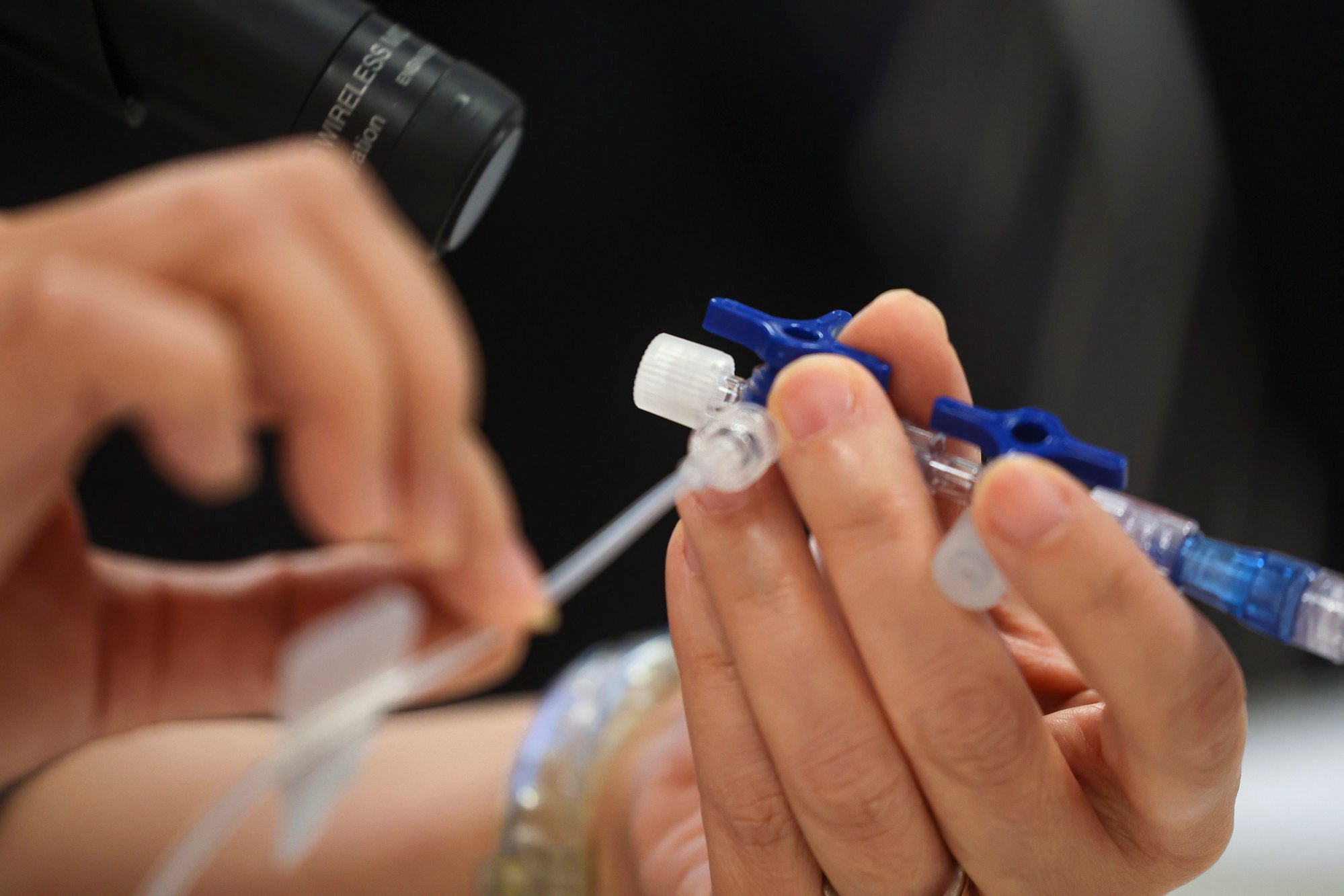
Veteran Hong Kong nurse’s negligence contributed to blunder with premature baby who died after valve on device left closed: inquiry
- Panel finds unopened valve on infusion line was ‘unintentional blind spot’ for nurse as she did not realise medicine was not reaching premature newborn, who later died
- Prince of Wales Hospital in Sha Tin pledges to explore ways to improve sensitivity of alarm system for injection device
A veteran nurse’s negligence contributed to a fatal blunder involving a premature baby with heart problems who died in a Hong Kong hospital after a valve on an infusion line for medicine was not opened, an inquiry has found.
In response to the findings, Prince of Wales Hospital in Sha Tin on Friday pledged to explore ways to improve the sensitivity of the alarm system for the injection device, which was responsible for delivering drugs to the patient.
The nurse, who had more than 20 years of experience and worked in the neonatal intensive care unit for a long time, quit last month for personal reasons.
Hong Kong hospitals ‘should use tech to inspect facilities, increase checks’
A hospital-appointed panel released the findings of its investigation two months after the premature newborn died in the intensive care unit 12 hours after a three-way valve controlling the flow of medicine was found to be closed.
It said negligence, among “multiple factors”, was the cause that led to the blunder.
“One of the nurses in charge did not open the valve so the medicine could not reach the infant. We think that inattentional blindness caused such negligence,” said Professor Fok Tai-fai, chairman of the Root Cause Analysis Panel.
“The nurse did look at the valve, but did not realise it was closed.”
Fok said the valve became “an unintentional blind spot” as the child was connected to a number of injection tubes and surrounded by many medical devices and an incubator.

He said the attending nurse was “distracted” because she was “too nervous” about the concentration level of the medicine and did not open the valve after the injection.
“The nurse kept asking another nurse if the concentration level was correct. They were then distracted and overlooked the closed valve,” he said.
The hospital said the case was being processed by the Coroner’s Court, which would determine the newborn’s cause of death.
The child, one of a set of twins, was born about two months premature on June 12 and sent to the intensive care unit after being diagnosed with congenital heart problems.
The baby was placed on assisted ventilation and given inotropes, which help to control heart contractions, including adrenaline.
Hong Kong medical experts caution against labelling infant’s death as blunder
When the infant’s heart condition worsened, the nurse injected a more concentrated dose of adrenaline to raise the blood pressure at 3am on June 13. As the child’s condition did not improve, two more doses were injected.
The device’s alarm went off 50 minutes later and the three-way valve controlling the flow of adrenaline was found to be closed. The infant died at 4pm the same day.
Fok said another factor behind the incident was that the injection device’s alarm was not sensitive enough to detect a blockage in the tube immediately.
“The device has a limitation. When the amount of medicine is extremely small, it requires a long time to activate the alarm system,” he said.
He added that the valve did not clearly indicate the liquid’s direction of flow and the hospital could not find other valves with clearer indications on the market.
Hong Kong hospital nurse injured by electric shock from faulty drug dispenser
Hospital chief executive Dr Chung kin-lai on Friday reported that the other nurse and two doctors who were also responsible for treating the baby had returned to work after being put on leave.
He pledged to look for three-way valves with better design, adding that the hospital had already shortened the time needed to activate the injection device’s alarm system to the minimum 20 minutes.
He said the hospital had revised its guidelines and added the requirement that medical staff should ensure the flow of medicine by “feeling” the tube’s beginning to its end including the three-way valve with their hands.
Medical officers had also been asked to include the checking of the tubes’ patency in their usual double-checking procedure for high-alert medications and had been reminded about the limitation of injection devices.

